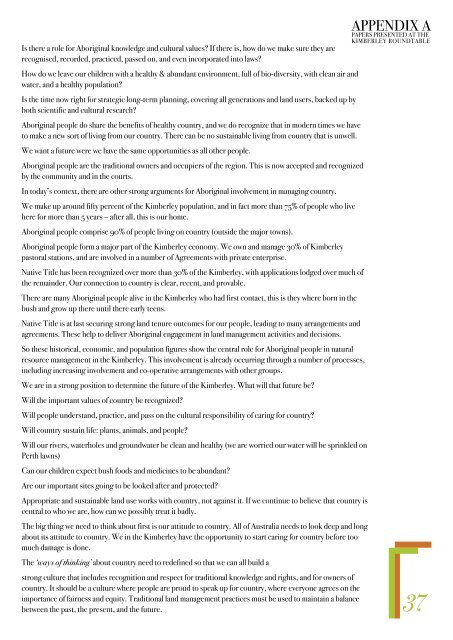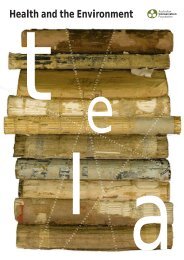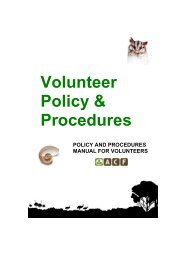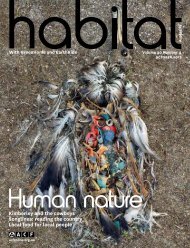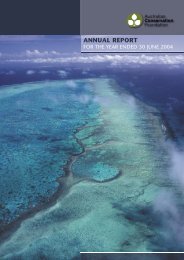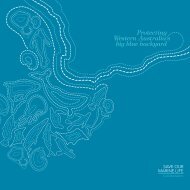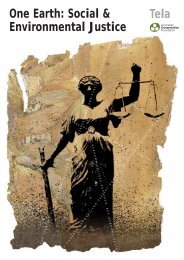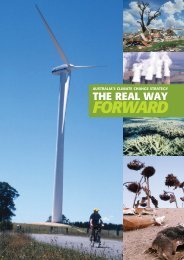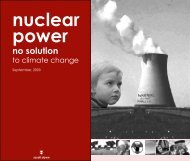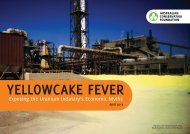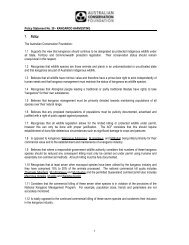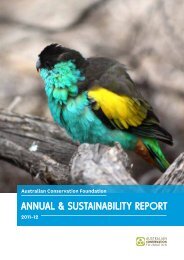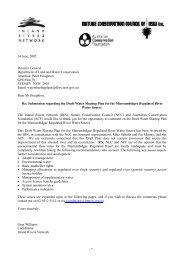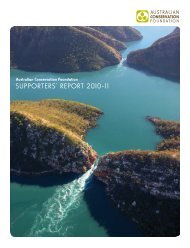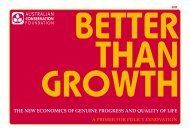Kimberley Appropriate Economics Interim Report - Australian ...
Kimberley Appropriate Economics Interim Report - Australian ...
Kimberley Appropriate Economics Interim Report - Australian ...
Create successful ePaper yourself
Turn your PDF publications into a flip-book with our unique Google optimized e-Paper software.
Is there a role for Aboriginal knowledge and cultural values? If there is, how do we make sure they are<br />
recognised, recorded, practiced, passed on, and even incorporated into laws?<br />
How do we leave our children with a healthy & abundant environment, full of bio-diversity, with clean air and<br />
water, and a healthy population?<br />
Is the time now right for strategic long-term planning, covering all generations and land users, backed up by<br />
both scientific and cultural research?<br />
Aboriginal people do share the benefits of healthy country, and we do recognize that in modern times we have<br />
to make a new sort of living from our country. There can be no sustainable living from country that is unwell.<br />
We want a future were we have the same opportunities as all other people.<br />
Aboriginal people are the traditional owners and occupiers of the region. This is now accepted and recognized<br />
by the community and in the courts.<br />
In today’s context, there are other strong arguments for Aboriginal involvement in managing country.<br />
We make up around fifty percent of the <strong>Kimberley</strong> population, and in fact more than 75% of people who live<br />
here for more than 5 years – after all, this is our home.<br />
Aboriginal people comprise 90% of people living on country (outside the major towns).<br />
Aboriginal people form a major part of the <strong>Kimberley</strong> economy. We own and manage 30% of <strong>Kimberley</strong><br />
pastoral stations, and are involved in a number of Agreements with private enterprise.<br />
Native Title has been recognized over more than 30% of the <strong>Kimberley</strong>, with applications lodged over much of<br />
the remainder. Our connection to country is clear, recent, and provable.<br />
There are many Aboriginal people alive in the <strong>Kimberley</strong> who had first contact, this is they where born in the<br />
bush and grow up there until there early teens.<br />
Native Title is at last securing strong land tenure outcomes for our people, leading to many arrangements and<br />
agreements. These help to deliver Aboriginal engagement in land management activities and decisions.<br />
So these historical, economic, and population figures show the central role for Aboriginal people in natural<br />
resource management in the <strong>Kimberley</strong>. This involvement is already occurring through a number of processes,<br />
including increasing involvement and co-operative arrangements with other groups.<br />
We are in a strong position to determine the future of the <strong>Kimberley</strong>. What will that future be?<br />
Will the important values of country be recognized?<br />
Will people understand, practice, and pass on the cultural responsibility of caring for country?<br />
Will country sustain life: plants, animals, and people?<br />
Will our rivers, waterholes and groundwater be clean and healthy (we are worried our water will be sprinkled on<br />
Perth lawns)<br />
Can our children expect bush foods and medicines to be abundant?<br />
Are our important sites going to be looked after and protected?<br />
<strong>Appropriate</strong> and sustainable land use works with country, not against it. If we continue to believe that country is<br />
central to who we are, how can we possibly treat it badly.<br />
The big thing we need to think about first is our attitude to country. All of Australia needs to look deep and long<br />
about its attitude to country. We in the <strong>Kimberley</strong> have the opportunity to start caring for country before too<br />
much damage is done.<br />
The ‘ways of thinking’ about country need to redefined so that we can all build a<br />
strong culture that includes recognition and respect for traditional knowledge and rights, and for owners of<br />
country. It should be a culture where people are proud to speak up for country, where everyone agrees on the<br />
importance of fairness and equity. Traditional land management practices must be used to maintain a balance<br />
between the past, the present, and the future.<br />
37


